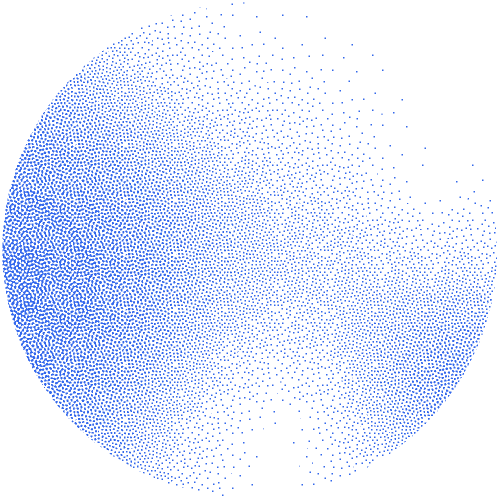ATGCCGGAATTGGCACATAACAAGTACTGCCTCGGTCCTTAAGCTGTATTGCACCATATGACGGATGCCGGAATTGGCACATAACAAGTAC
TGCCTCGGTCCTTAAGCTGTATTGCACCATATGACGGATGCCGGAATTGGCACATAACAACGGTCCTTAAGCTGTATTGCACCATATGACG
GATGCCGGAATTGGCACATAACAAGTACTGCCTCGGTCCTTAAGCTGTATTTCGGTCCTTAAGCTGTATTCCTTAACAACGGTCCTTAAGG
ATGCCGGAATTGGCACATAACAAGTACTGCCTCGGTCCTTAAGCTGTATTGCACCATATGACGGATGCCGGAATTGGCACATAACAAGTAC
TGCCTCGGTCCTTAAGCTGTATTGCACCATATGACGGATGCCGGAATTGGCACATAACAACGGTCCTTAAGCTGTATTGCACCATATGACG
GATGCCGGAATTGGCACATAACAAGTACTGCCTCGGTCCTTAAGCTGTATTTCGGTCCTTAAGCTGTATTCCTTAACAACGGTCCTTAAGG


Single-Cell Transcriptomics with R



18 March 2020

18 March 2020




For-profit: 900 CHF

Next course(s):
| 02 - 04 Mar 2021 |

|
Streamed |
| 15 - 17 Jun 2021 |

|
Streamed |
| 08 - 10 Nov 2021 |

|
Bern |
| 28 Feb - 02 Mar 2022 |

|
Streamed |
| 04 - 06 Jul 2022 |

|
Bern |
| 14 - 16 Nov 2022 |

|
Bern |
| 06 - 08 Mar 2023 |

|
Streamed |
| 03 - 05 Jul 2023 |

|
Bern |
| 13 - 15 Nov 2023 |

|
Bern |
| 18 - 20 Mar 2024 |

|
Bern |
| 29 - 31 Oct 2024 |

|
Bellinzona |
| 18 - 20 Mar 2025 |

|
Bern |
| 02 - 04 Jul 2025 |

|
Zürich |
| 12 - 14 Nov 2025 |

|
Bellinzona |
| 18 - 20 Mar 2026 |

|
Bern |
| 16 - 18 Jun 2026 |

|
Zürich |
| 11 - 13 Nov 2026 |

|
Bellinzona |
Due to COVID-19, this course has been postponed. Registered participants will receive specific information directly from the respective course’s organizers.
Overview
In contrast to the Bulk RNA sequencing used to quantify the abundance of gene and transcript expression at a whole population level, single-cell RNA sequencing (scRNAseq) allows researchers to study gene expression profile at a single cell resolution while enabling the discovery of tissue specific subpopulations and markers. For example, contrasting different sample conditions i.e. disease vs. normal using scRNAseq can help identify sub-cellular differential behaviours and thus target specific gene markers. This 3-day course will cover the main technologies as well main aspects to consider while designing a scRNAseq experiment including a hands-on practical data analysis session applied to droplet-based methods.
Audience
This course is intended for life scientists and bioinformaticians familiar with "Next Generation Sequencing" who wish to acquire the necessary skills to analyse scRNA-seq gene expression data.
Learning objectives
At the end of the course attendees will be able to:
- distinguish advantages and pitfalls of scRNAseq
- design their own scRNA-seq experiment
- apply a downstream analysis using R
Knowledge / competencies prerequired (Mandatory)
Participants should already have a basic knowledge in Next Generation Sequencing (NGS) techniques, or have already followed the "NGS - Quality control, Alignment, Visualisation" given twice a year at the SIB. Knowledge in RNA sequencing is a plus. A basic knowledge of the R statistical software is required.
Technical requirements
Attendees should bring a Wi-Fi enabled laptop. An online R and RStudio environment will be provided, but attendees who wish to run the practicals on their own laptop should install R and RStudio, as well as install the R packages Seurat, scran, scater, SingleR and monocle, before the start of the course.
Program
First day
Introduction to scRNAseq:
- Technologies
- Experimental design
- R versus GUI-based tools
Quality control
- Dropouts - Doublets
- Doublet removal using simulation
- Ribosomal / mitochondrial RNAs
- Cell cycling
Normalization and scalability
- Feature selection
- Log scaling
- Confounding factors removal
Second day
Dimensionality reduction and cell type clustering
- PCA
- tSNE
- UMAP
- Clustering methods (Hierarchical, K-means and Graph-based)
- Data integration of complex experimental designs
Cell type identification and marker identification
- Methods and applications
Differential expression analysis
- Methods overview
Third day
Differential expression analysis - continued
- DE between clusters
- DE between samples (involving data integration)
- Gene set enrichment analysis
Pseudotime analysis
- Methods and applications
Application
The registration fees for academics are 180 CHF and 900 CHF for participants from for-profit companies. This includes course content material and coffee breaks. Participants from non-academic institutions should contact us before application.
Deadline for registration and free-of-charge cancellation is set to 18/03/2020. Cancellation after this date will not be reimbursed. Please note that participation in SIB courses is subject to our general conditions.
You will be informed by email of your registration confirmation.
Venue and Time
University of Lausanne, Amphipole building (Metro M1 line, Sorge station). The course will start at 9:00 and end around 17:00. Precise information will be provided to the participants in due time.
Additional information
Coordination: Monique Zahn
We will recommend 0.75 ECTS credits for this course (given a passed exam at the end of the course).
You are welcome to register to the SIB courses mailing list to be informed of all future courses and workshops, as well as all important deadlines using the form here.
For more information, please contact training@sib.swiss.